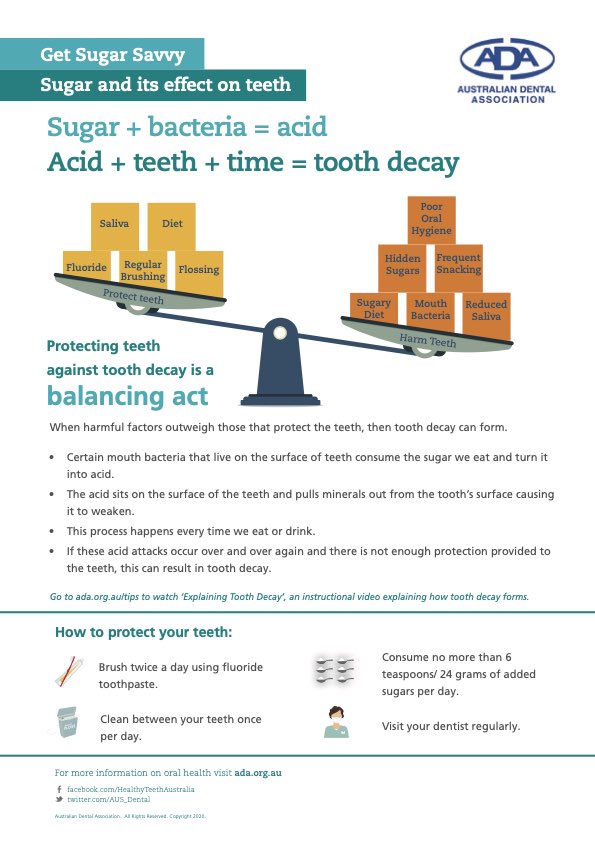Dental Health Week – How Much Sugar is Hidden in Your Trolley? Part 1

Sugar & Nutrition
“You are what you eat and drink” and this has a major effect on the health of your teeth and gums.
Tooth decay is a diet-related disease that occurs in response to our eating or drinking of sugar. The sugar is taken up by decay-causing bacteria that live on the surfaces of our teeth. These types of bacteria metabolise the sugar, turning it into lactic acid which is then excreted on the surface of our teeth. This then reacts with the enamel where it draws out minerals from this surface layer of the tooth. If this process occurs over and over, without any effort to prevent or curb the disease process, it can eventually result in the weakening of the enamel and the formation of tooth decay.
Below are tips for reducing your sugar consumption to help prevent tooth decay.
Drink lots of water
Water is the best choice for your teeth. It is good for you, it is sugar free and in most areas in Australian it contains fluoride.
Drinking fluoridated tap water is one of the most cost-effective ways to try to prevent tooth decay.
Sugar-sweetened beverages such as soft drinks, energy drinks, sports drinks and even fruit juices are packed with sugar. These drinks provide no nutritional content and increase your risk of developing tooth decay as well as a range of other health conditions like Type 2 diabetes. Even the sugar-free varieties can cause damage to your teeth as these drinks have a low pH, making them acidic, which can cause the tooth’s surface to soften and become worn.

How much is too much?
One 600ml bottle of soft drink, on average, contains 16 teaspoons of sugar!
This is over twice the recommended daily sugar intake for adults.
The World Health Organization (WHO) recommends that adult sugar intake be equal to 5% of your daily total energy intake (kJ) to decrease your risk of developing tooth decay as well as other health benefits.
For the average adult, this equates to 6 teaspoons (equal to 24 grams) of free sugar per day.
Sugar consumption is based on 5% of total energy intake:
(Kilojoules are the measurement of energy from foods and drinks used in Australia. In some countries, calories are still used as the unit of measure. For reference, 8360kJ = 2000Kcal.)
5% of 8700kJ
0.05 x 8700kJ = 435kJ
435kJ = 6.3 teaspoons of sugar per day
68kJ (approximate kilojoules in 1 teaspoon of sugar)
Note: The kJ value in the above equation is the average adult intake.
You will notice free sugar is used above. Here are various terms used for sugar:
- Added sugar – sugar added to food and drinks during its processing and manufacturing
- Free sugar – this includes added sugars, as well as the sugar that naturally occurs in honey, syrups, fruit juice and fruit juice concentrate.
- Natural sugar – is part of the natural structure of foods,
- vegetables, fruits (fructose)
- dairy (lactose).

Need an Appointment?
If you’d like to book an appointment with the dentist at Seymour Dental then call us in Dulwich Hill, Sydney on (02) 9564 2397 or
contact us
Next week
Dental Health Week - How Much Sugar is Hidden in Your Trolley? Part 2 - Reading the Labels